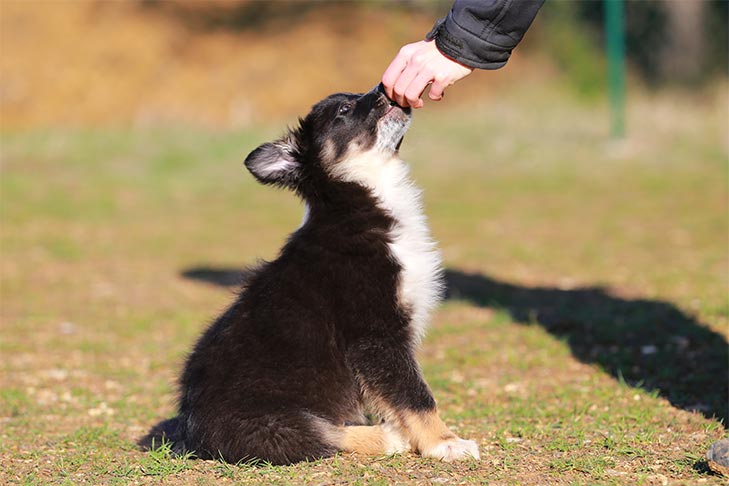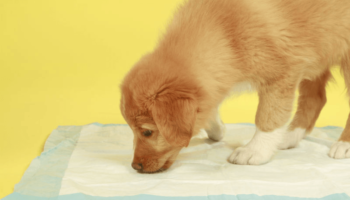Puppy training is difficult, but it’s one thing that you’ll have to prepare for if you want to bring home a young pup rather than adopt an older dog.
Almost everyone says three things about puppy training: that it’s exhausting, stressful, and doesn’t seem to be working. Or, if you’ve so far had success, you might find the progress you’ve been making has stopped.
The first thing to remember is that you’re not alone. Training takes time and there’s a level of consistency needed in order for it to work, and pretty much everyone struggles with keeping their cool during puppy training. As such, it’s important to keep going, even when it feels like nothing is working and no progress is being made.
Here are a few tips to help you keep on going with puppy training, even when it feels pointless and stressful.
1. Work on your own mindset
Puppy training is a chance for both parties to learn. While you’re teaching your puppy to behave, they can also be a helpful tool in teaching you to take a step back and change your mindset to be more positive.
Easier said than done, right?
When you first get your puppy, you’ll have the puppy love period, where everything they do is adorable.
Then reality sits in, and you find yourself shouting at them: ‘Stop chewing things, don’t do that’, etc.
By shouting, not only will this impact your pooch, but it will also help your frustration build up inside, and built-up frustration will only lead to more anger, annoyance, and stress. When you’re stressed, it’s much easier to give up and sulk.
Shouting every time they do something wrong will actually create a much more negative mindset for you, so it’s time to switch up the track.
By saying ‘yes’ more often, rather than always focusing on the negative, you might just find your mindset changes to be a little more positive, and your stress levels go down. If you start your puppy training less stressed in general, the training will be less exhausting, and you’ll have more energy to get back on track.
2. Practice self-care
It’s easy to become overwhelmed and forget about looking after yourself between taking care of the house, managing your day job, and puppy training. Self-care is incredibly important, especially when taking on something as stressful as puppy training.
By taking time to focus on you and your needs, you’ll find that you’re much less stressed when focusing on others – or your pooch. So, when things really don’t seem to be going anywhere with your furry friend, take a step back, run a bath and come back to it with a fresh and level mind.
3. Create a support network
When you first bring home a puppy, you’ll likely meet new pet owners at the park or at puppy daycare. Creating your own support network is a helpful way to get tips and tricks for training, as well as helping you remember that you’re not alone.
Hiring a dog walker or leaning on a friend to take the pooch for a few hours will help you have the time peace to clean up the house (potty training ain’t so sweet either) or just to take a little time out for yourself.
4. Take it slow
During the first few training sessions, you might find your puppy takes to it like a duck to water! However, if you start to see training plateauing, it’s usually because your pooch is struggling to understand what’s expected. It can be tempting to power through all the training they need, but it’s important to take it slow and at a pace that works for both of you.
Pair it down and take your time with each thing you’re trying to teach them. If you find your puppy is struggling to understand anything at all, it might be worth booking an appointment with a madison veterinary clinic to see if there are any health or behavioral concerns that might be stopping them. The vet will likely have a few tips up their sleeve to help you out, too.
5. Always finish on a positive
Just like you should never go to bed angry at your partner, you should always try to end training on a positive. To end on a high, always finish the session with something they’re really good at. Whether that’s simply getting them to sit or fetch a ball. Don’t forget a cheeky treat, too.
Ending on a positive is as much for you as it is for them. Both of you will feel much better, and it’ll put you in good stead to try again tomorrow.
With a little time to de-stress, and some help from friends, your puppy training can be taken at a pace that suits you both. Plus, if nothing else works, up the ante with new delicious treats.






